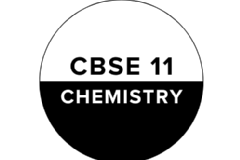Building strong concepts in mathematics for Grade 11 and 12 is crucial, as it sets the foundation for competitive exams and future studies. The topics at this level often include advanced algebra, calculus, trigonometry, and coordinate geometry. Here’s a structured approach to strengthen mathematical concepts for students across all boards:
1. Understand the Curriculum and Exam Requirements
- Familiarize yourself with the syllabus for your specific board (CBSE, ICSE, State Boards, or International Boards).
- Identify core topics such as calculus, vectors, matrices, probability, trigonometry, and algebra.
- Review the exam pattern, types of questions asked, and weightage for each topic.
2. Conceptual Foundation in Key Areas
- Algebra: Master complex numbers, sequences and series, binomial theorem, quadratic equations, and logarithmic functions. Focus on the principles and properties of each topic.
- Calculus: This is a major part of higher secondary math. Start with limits and continuity, then move to derivatives, integration, and differential equations. Understanding the applications of calculus is also crucial.
- Trigonometry: Memorize key identities and practice applying them. Master angles, radian measure, trigonometric equations, and inverse trigonometric functions.
- Coordinate Geometry: Cover straight lines, circles, parabolas, ellipses, and hyperbolas in detail. Learn how to use coordinates to solve geometric problems.
- Probability and Statistics: Focus on the basics of probability, permutations, combinations, and distributions. Practice data interpretation, which can be beneficial for both board exams and competitive exams.
3. Develop Problem-Solving Skills
- Practice a wide range of problems, starting from basic to advanced levels.
- Use previous years' question papers and sample papers to understand question types and difficulty levels.
- Focus on application-based problems as these require a clear understanding of concepts and are commonly asked in exams.
4. Study Techniques
- Concept Mapping: Draw diagrams or flowcharts to connect related concepts. For example, while studying calculus, map out how differentiation and integration relate to each other.
- Regular Practice: Dedicate time daily or weekly to practice. Mathematics requires consistent practice to master techniques and retain concepts.
- Real-World Applications: Find applications of math in real-life scenarios, like physics for calculus or economics for algebra, which can make concepts easier to understand and more engaging.
- Group Studies and Discussions: Discussing problems with peers can offer new perspectives and help clear doubts.
5. Use Quality Study Resources
- NCERT Books: These are essential for CBSE students but are also a great base for understanding concepts for any board.
- Reference Books: Consider books like R.D. Sharma, R.S. Aggarwal, S.L. Loney for trigonometry and coordinate geometry, and I.A. Maron for calculus.
- Online Resources: Platforms like Khan Academy, Coursera, and educational YouTube channels can be very helpful for visual learning and step-by-step tutorials.
- Practice Workbooks: Many publications offer question banks and practice workbooks specifically for board exam preparation.
6. Focus on Competitive Exam Preparation (Optional)
- If planning to take exams like JEE, NEET, or other entrance exams, familiarize yourself with the specific math syllabus for those exams.
- Focus on strengthening problem-solving speed and accuracy.
- Take timed practice tests to simulate exam conditions and improve time management.
7. Common Pitfalls and Tips for Avoiding Them
- Skipping Fundamentals: Don’t skip basic concepts; ensure that you understand the foundational principles before moving to advanced problems.
- Avoiding Challenging Problems: Challenge yourself by tackling difficult problems to build resilience and critical thinking.
- Inconsistent Practice: Mathematics requires daily or regular practice. Create a schedule and stick to it.
- Not Reviewing Mistakes: Review mistakes thoroughly, understand where you went wrong, and learn the correct approach to avoid repetition.
8. Revision Strategy
- Create summary notes or flashcards for formulas, theorems, and properties.
- Set aside time specifically for revision in the weeks leading up to exams.
- Practice quick problem-solving techniques and tricks, especially for repetitive calculations or common question types.
9. Self-Assessment and Progress Tracking
- Take mock tests periodically to gauge your understanding and improvement.
- Maintain a log of topics you find challenging and revisit them until they’re clear.
- Use feedback from teachers or peers to address weaknesses and reinforce strengths.
By following these strategies, students can build a strong foundation in mathematics, preparing them for both board exams and competitive exams effectively.







